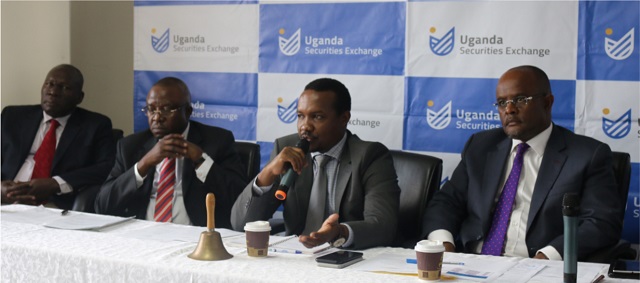
Why brokerage firms must diversify investments to cope with emerging stock market trends
Kampala, Uganda | JULIUS BUSINGE | Once upon a time, being a stockbroker was comfortable, genteel and lucrative, according to Andre Cappon, the chief executive officer, CBM Group, a management consultant firm specialising in financial services based in New York.
He says brokers, as members and owners controlled the exchanges and that the exchanges were run as quasi-non-profit clubs or utilities to support their members.
“Exchanges had monopoly on liquidity and brokers controlled access. By providing investors access to markets, brokers earned commissions and also received trading fee rebates from the exchange,” he says.
Cappon’s analysis best describes the situation that Uganda’s stockbrokers were in a few years ago.
However, in 2015, with the evolution of the stock market driven by technology adoption and the continued change in the market structure, brokerage firms now seem to be anticipating more declines in revenue streams ahead as the cost of intermediation in the process of serving investors fall.
This could be worsened by the USE’s planned unveiling of an electronic platform later this year that will enable prospective investors to access market directly including making payments. This move is already triggering brokerage firms to think outside the box for survival.
On April 11, African Alliance Uganda Limited, which has been in operation for the last 15 years, announced that it was exiting the brokerage industry effective April 30.
The company’s Chief Executive Officer, Kenneth Kitariko, said at the Nakawa based USE that the “ stock brokerage business is not making money.”
“…when the business is not making money, you have to plan for the future,” he said, “the shareholders will not be happy to subsidise the stoke broking business in Uganda…it is an issue of survival,” he said.
However, Kitariko said they have a lot of good prospects and will be more engaged in the advisory business that is now easier to manage.
Figures from the Capital Markets Authority indicate that Uganda has 14 firms engaged in investment advisory services and seven stock brokers. The figure of 14 means African Alliance will need to think hard to overcome competition in a minute market.
Kitariko said that investors in many markets are leaning more towards fixed income instruments as countries use fiscal policy to bolster their currencies or borrow at relatively higher interest rates.
As a policy recommendation, Kitariko said market regulators should engage in conversations geared towards allowing the stock exchange and stock brokers engage and invest in the fixed income market.
In fact, he said, that if that was the case today, African Alliance would have kept in the trade.
Meanwhile, a company note had earlier indicated that clients with SCD accounts or documents of title (with or without cash balances) that will not have transferred by Monday May 06 to another firm of their choice, would have their accounts and cash balances transferred to UAP Old Mutual Financial Services Limited that had been cleared by the regulators for this transaction.
For the last 15 years, market analysts have hailed the African Alliance for being active at the bourse.
According to figures The Independent obtained from the USE, the company traded Shs458.8billion from 2010 to date and had 5612 registered investors.
It was the lead sponsoring broker for the popular power distributor, Umeme IPO in 2012 (that raised about Shs44.7bn). It participated in dfcu and Uganda Clays rights issues in 2017 and 2008 respectively.
It was also in charge of Stanbic’s bonus issues of 2010 and 2012. It was the lead advisor for Nation Media Group cross listing both in Uganda and Rwanda in 2010. It was the lead transaction advisor and sponsoring broker for Equity bank in 2009, It was a co-sponsoring broker for Stanbic IPO in 2007, lead transaction advisor and sponsoring broker for PTA bank in 2009, Bank of Baroda bonus issue 2011, Housing Finance bond for 2012 and African Development Bank bond (2012).
The company was also the lead transaction advisor for a number of transactions in Rwanda such as one for Bralirwa and Bank of Kigali among other transactions.
 The Independent Uganda: You get the Truth we Pay the Price
The Independent Uganda: You get the Truth we Pay the Price



hi thanks for the information and posts 🙂
hi, i totally agree with the fact that According to figures The Independent obtained from the USE, the company traded Shs458.8billion from 2010 to date and had 5612 registered investors.
I like very much for this info… very nice.
I really like this article.